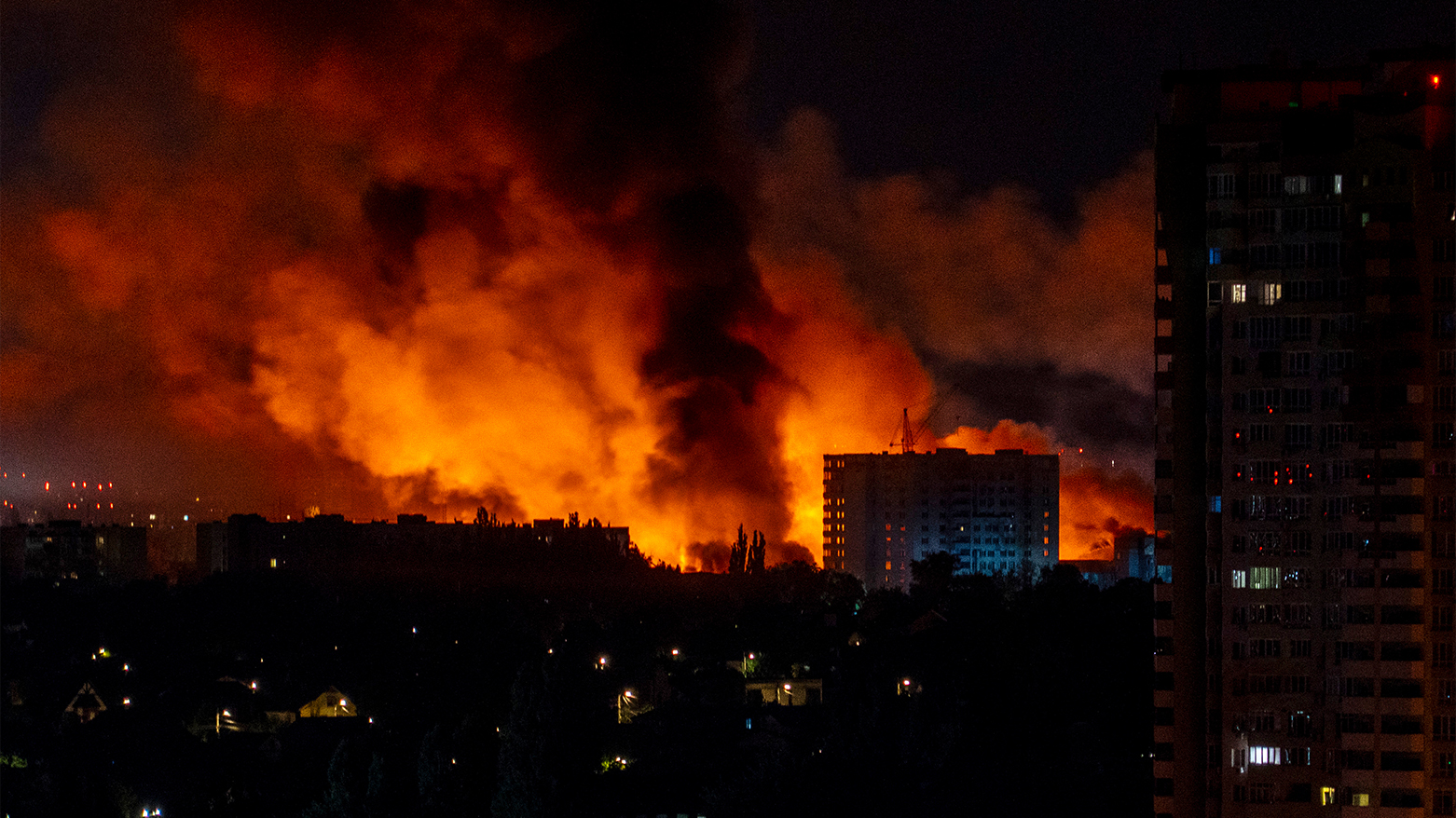Kyiv Endures Heaviest Russian Aerial Barrage Amid Stalled Peace Efforts, Trump Criticizes Putin
Zelenskyy slams Russia's largest aerial assault since the war began—550 drones and missiles—as "cynical," hours after Trump's call with Putin. Kyiv urges tougher U.S. sanctions, warning peace won't come without major pressure. Trump admits call made "no progress."

By Kamaran Aziz
ERBIL (Kurdistan 24) — Ukraine suffered its most intense aerial attack since the beginning of the war, with President Volodymyr Zelenskyy condemning Russia's overnight assault as "demonstratively significant and cynical," according to Sky News. The barrage came just hours after a phone conversation between U.S. President Donald Trump and Russian President Vladimir Putin, sparking criticism from Kyiv over Moscow's perceived disregard for peace talks.
Zelenskyy said that air raid sirens began to sound across Ukraine "almost simultaneously" with the start of the Trump-Putin call. He described the capital, Kyiv, as the primary target, calling it a "hard, sleepless night."
"All this is obvious proof that without really large-scale pressure, Russia will not change its stupid, destructive behaviour," Zelenskyy declared. He urged Ukraine's Western allies to intensify sanctions and other economic measures against Moscow, saying that meaningful change "depends on the partners, primarily the United States."
According to the Ukrainian Air Force, Russia launched a staggering 550 drones and missiles overnight, the largest single aerial offensive since the invasion began over three years ago. Air force spokesperson Yuriy Ignat confirmed that the total included 539 drones and 11 missiles. Ukrainian air defenses reportedly downed 268 drones and two missiles.
The air force characterized the scale of the strike as unprecedented. "This is the largest number that the enemy has used in a single attack," Ignat stated.
Ukrainian Foreign Minister Andrii Sybiha linked the timing of the assault directly to the Trump-Putin phone call. Writing on social media, Sybiha said: "Right after Putin spoke with President Trump. And he does it on purpose. Enough of waiting! Putin clearly shows his complete disregard for the United States and everyone who has called for an end to the war."
For his part, Trump expressed disappointment in Putin following their discussion. In comments reported by Sky News, Trump said he "does not believe [Putin] will stop the war in Ukraine," noting that the call had brought "no progress at all" toward ending the conflict.
While the Kremlin described the conversation as "frank and constructive," and claimed the two leaders were "on the same wavelength," Putin reportedly told Trump that "Russia will continue to pursue its goals" and "will not back down" from its objectives in Ukraine.
Trump added that he plans to speak with Ukrainian President Zelenskyy later in the day, though no further details were immediately available.
As the heaviest aerial bombardment since the war's onset further devastates Ukrainian infrastructure and escalates civilian casualties, Kyiv and its Western allies appear to be running out of diplomatic patience. The massive attack underscores the fragile state of any potential ceasefire and raises serious questions about the viability of ongoing peace initiatives led by the United States and other international actors.
The timing and scale of Russia's aerial offensive may significantly harden international attitudes, particularly in Washington, where bipartisan criticism of Moscow has grown amid stalled negotiations and repeated Russian military escalations.